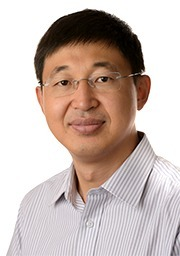
Prof. Yonghui Li, The University of Sydney, Australia (IEEE Fellow, ARC Future Fellow)
Yonghui Li is now a Professor and Director of Wireless Engineering Laboratory in School of Electrical and Information Engineering, University of Sydney. He is the recipient of the Australian Research Council (ARC)Queen Elizabeth II Fellowship in 2008 and ARC Future Fellowship in 2012. He is an IEEE Fellow and Clarivate highly cited researcher. His current research interests are in the area of wireless communications. Professor Li was an editor for IEEE transactions on communications, IEEE transactions on vehicular technology and guest editors for several special issues of IEEE journals, such as IEEE JSAC, IEEE IoT Journals, IEEE Communications Magazine. He received the best paper awards from several conferences. He has published one book, more than 300 papers in premier IEEE journals and more than 200 papers in premier IEEE conferences. His publications have been cited more than 25000 times.
Title: Beyond 5G towards a Super-connected World
Abstract: Connected smart objects, platforms and environments have been identified as the next big technology development, enabling significant society changes and economic growth. The entire physical world will be connected to the Internet, referred to as Internet of Things (IoT). The intelligent IoT network for automatic interaction and processing between objects and environments will become an inherent part of areas such as electricity, transportation, industrial control, utilities management, healthcare, water resources management and mining. Wireless networks are one of the key enabling technologies of the IoT. They are likely to be universally used for last mile connectivity due to their flexibility, scalability and cost effectiveness. The attributes and traffic models of IoT networks are essentially different from those of conventional communication systems, which are designed to transmit voice, data and multimedia. IoT access networks face many unique challenges that cannot be addressed by existing network protocols; these include support for a truly massive number of devices, the transmission of huge volumes of data burst in large-scale networks over limited bandwidth, and the ability to accommodate diverse traffic patterns and quality of service (QoS) requirements. Some IoT applications have much stringent latency and reliability requirements which cannot be accommodated by existing wireless networks. Addressing these challenges requires the development of new wireless access technologies, underlying network protocols, signal processing techniques and security protocols. In this talk, I will present the IoT network development, architecture, key challenges, requirements, potential solutions and recent research progress in this area, particularly in 5G and beyond 5G.
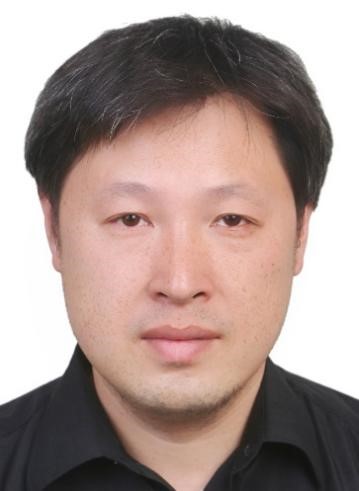
Prof. Lijia Pan, Nanjing University, China (IEEE Senior Member)
Pan is full professor of Nanjing University and IEEE senior member. He received Bachelor degree from South China University of technology; Obtained Ph.D. degree from the University of science and technology of China; From 2011 to 2012 and May-August 2017, he was visiting scholar to Stanford University; he was selected for National Outstanding Youth Scientist Fund in 2018. More than 160 articles were published in peer reviewed journals including Nature Common., PNAS, Adv. Mater., Nano lett., ACS Nano, Adv. Funct. Mater., Energy & Environment. Sci.,, Acc. Chem. Res., and IEEE Electron Dev. Lett. Pan's articles were cited more than 12000 times, with H-factor 47, and 14 ESI high cited papers.
Title: Polymer intelligent sensing materials and devices
Abstract: The Internet of Things based on various intelligent perception technologies for detection, perception, and information collection is becoming increasingly important, while higher performance requirements are being put forward for new sensors. The new polymer intelligent sensing materials and devices integrate material chemistry, biological science, micro nano processing, and electronic information. Through the research and application of new materials and mechanisms, polymer intelligent sensors have made great progress in response performance, multimodal operation, stability, and have expanded from single sensor devices to system level research and optimization. This report elaborates on the hot research topics in recent years and introduces the research progress of our team in novel polymer thin film sensors.
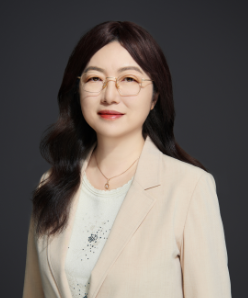
Prof. Yan Yang, Southwest Jiaotong University, China
Dr. Yan Yang is currently Professor of Computing and Artificial Intelligence, Southwest Jiaotong University. She holds an Academic and Technical Leader of Sichuan Province. Her mainly research interests include artificial intelligence, big data analysis and mining, ensemble learning and multi-view learning, etc. She has undertaken more than 10 high-level projects and published more than 260 papers, one of which was selected as one of the 100 most influential international academic papers in China in 2021. She won the special award of Zhan Tianyou Railway Science and Technology Award, and first prize of computer science and technology of Sichuan Province. She also serves as the Vice Chair of ACM Chengdu Chapter, and Vice-Chairman General of Sichuan Computer Society.
Title: Visual Knowledge-drvien Natural Language Understanding
Abstract: Visual Knowledge-Guided Natural Language Understanding is an emerging field in natural language processing. With the rise of multimodal data from platforms like Weibo and WeChat, the traditional text-based methods face new challenges. Humans naturally integrate visual and linguistic signals for deeper reasoning. In this talk, I will explore how visual content can enhance language understanding, focusing on cross-modal semantic perception, alignment, and reasoning. I also demonstrate its application in tasks such as fake news detection, named entity recognition, sentiment analysis, and sarcasm detection.
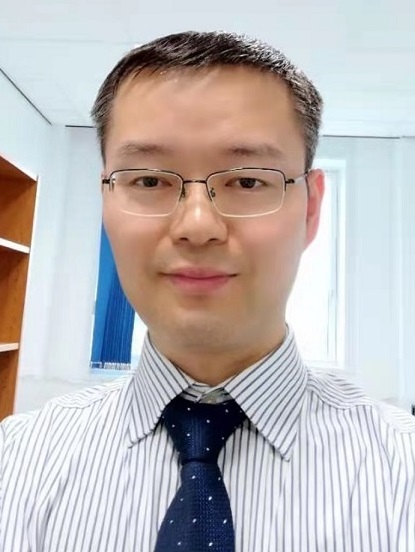
Prof. Feng Zhao, University of Science and Technology of China, China (HEA Fellow)
Feng Zhao received the B.Eng. degree in electronic engineering from the University of Science and Technology of China (USTC), Hefei, China, in 2000, and the M.Phil. and Ph.D. degrees in computer vision from The Chinese University of Hong Kong, Hong Kong, in 2002 and 2006, respectively. From 2006 to 2018, he was a Post-Doctoral Fellow, Research Fellow, and permanent Senior Lecturer in Hong Kong, Singapore, and the United Kingdom. Since 2019, he has been a Professor and a Ph.D. Advisor with USTC. He has authored or coauthored more than 140 papers in referred international journals and conferences, including IEEE Transactions (e.g., TPAMI, TIP, TNNLS, TMM), Pattern Recognition, NeurIPS, ICML, ICLR, CVPR, ICCV, ECCV, IJCAI, AAAI, ACM MM, EMNLP, and ACL. His research interests include foundation model, AI4Science, autonomous driving, machine learning, computer vision, and image processing. Prof. Zhao was the recipients of the Best Paper Award in ICIDM 2018 and the Outstanding Paper Award in ACL 2024, the Champion of IJCAI-PRICAI 2020 3D AI Challenge, the Runner-up of CVPR 2021 Streaming Perception Challenge, and the Champions of ICCV 2023 Continual Test-time Adaptation for Semantic Segmentation Challenge and Multitask Learning for Robustness Challenge. He was the Program Committee Chairs of the International Conference on AI-Generated Content (AIGC) 2023 and 2024, and the Area Chairs of ACM MM 2023- 2025.
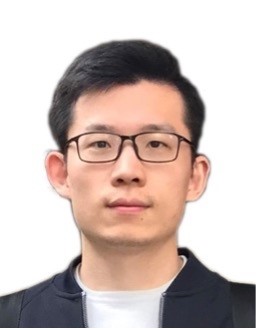
Dr. Yuyang Liu, DeepVerse, China (CEO of DeepVerse)
Dr. Liu is the Founder and CEO of DeepVerse, a materials informatics startup accelerating material discovery through AI and computational physics. He holds a Ph.D. in Theoretical Physics from the University of Cambridge and was a Research Fellow at MIT. With a research background spanning physics, materials science, and biology, Dr. Liu is committed to innovating materials informatics to enhance material development and efficiency for clients.
Title:Multi-Agent AI Systems for Materials Innovation: Accelerating Discovery with Adaptive AI
Abstract:This presentation explores the integration of multi-agent AI systems in materials innovation. Dr. Liu will demonstrate how adaptive AI, combined with active learning and uncertainty quantification, can optimize material properties from sparse experimental datasets. The session will outline key challenges in materials R&D and showcase DeepVerse’s proprietary platform—featuring solutions such as Lab Assistant and Auto Lab—that delivers breakthrough efficiency gains. Attendees will gain insights into the future of computationally assisted materials research.





